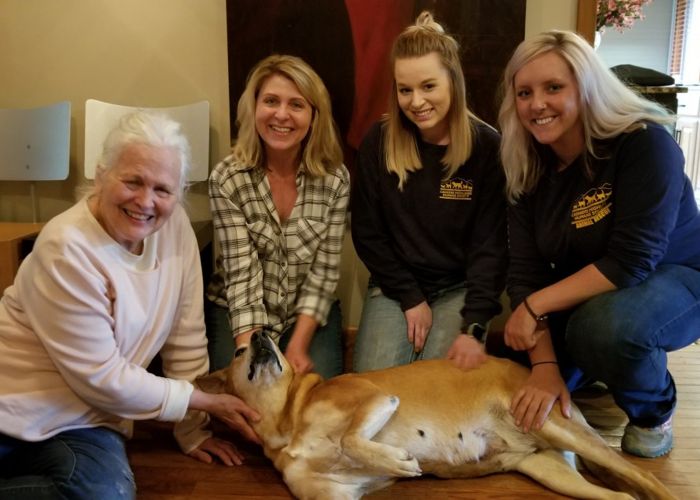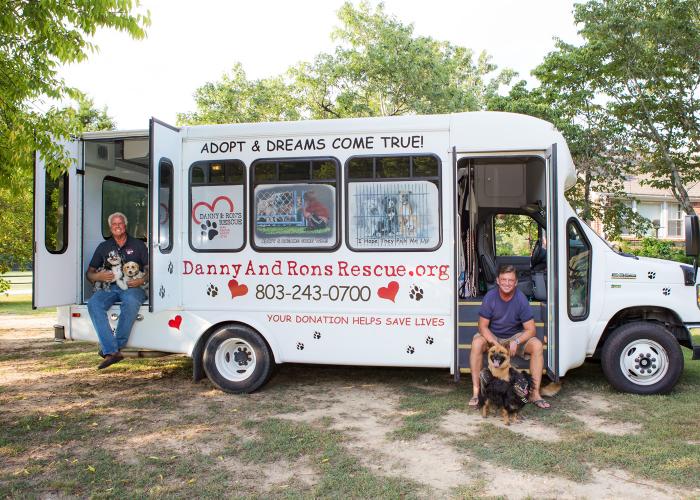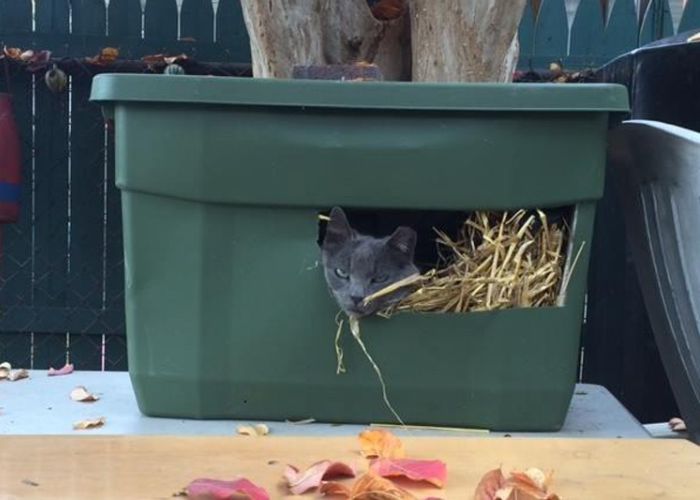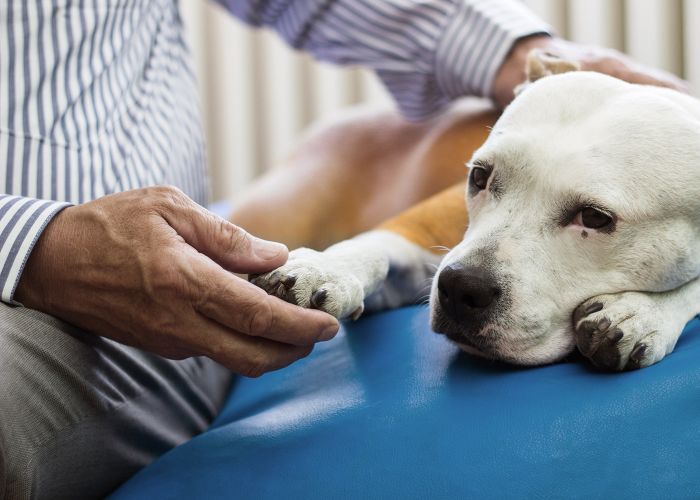Humans of Animal Advocacy: Ashley Mauceri
A lunch date led the Humane World director of law enforcement outreach and engagement to a career in animal welfare
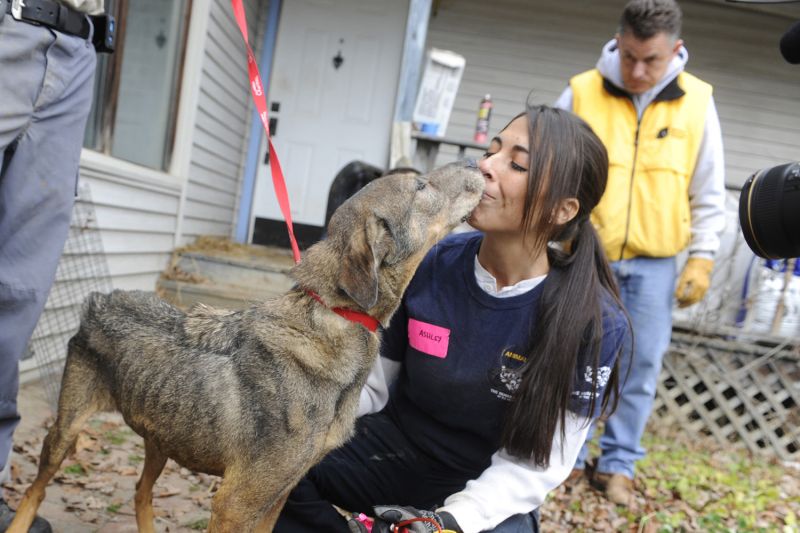
A lifelong animal lover who knew she “wasn’t meant to be a veterinarian,” Ashley Mauceri came to Humane World for Animals as a summer intern and soon after was hired to work on cruelty investigations.
That was 15 years ago, and Mauceri’s passion for protecting animals hasn’t abated. As director of law enforcement outreach and engagement at the HSUS, she helps train thousands of law enforcement officers each year on investigating and prosecuting animal fighting and cruelty cases and responding to animals in crisis.
In this edited interview with HumanePro, Mauceri explains what led her to a career in animal welfare and the crucial connection between law enforcement and animal protection.
What brought you to Humane World?
In college I shared my interest in animal protection with my professors, one of whom was hosting a guest lecturer from the former HSUS who talked about the link between animal abuse and intimate-partner violence and other violence against humans. My professors set up a lunch with her afterwards. It was a pivotal moment for me—I didn’t realize I could have a career protecting animals. That lunch totally changed my life because I decided then and there I was going to work for the Humane World for the Animals. When I graduated, I applied for an internship, and the rest is history.
Why is law enforcement training important?
One of the common misconceptions regarding law enforcement and animal protection is that if an officer doesn’t take immediate action, it means they don’t care. In my experience, it’s rarely that. Most people assume law enforcement officers are trained on animal investigations, but typically they aren’t. They often face a lack of training and, frequently, a lack of resources. They may not have contacts or know whom to call. They may not have a veterinarian to work with. There’s also a movement toward more service-based law enforcement. Both animal control officers and law enforcement officers are trying creative approaches to some of these calls—specifically issues of neglect, which are often issues rooted in access to care. For example, if someone’s having trouble providing food for her pet, connecting her with resources and support is often better than punitive measures.
Most people assume law enforcement officers are trained on animal investigations, but typically they aren’t. They often face a lack of training and, frequently, a lack of resources.
Can you share a highlight from your career?
The first piece of legislation that I worked on when I started doing law enforcement outreach was the Preventing Animal Cruelty and Torture (PACT) Act, which would become the first federal law targeting wanton acts of animal cruelty. We had over 200 law enforcement agencies endorse the bill. I remember watching C-SPAN, and every single representative that came up to testify in favor of the bill mentioned the law enforcement support. Tears came to my eyes. It was so meaningful to see the endorsements in action and the impact they had on legislators. When it was signed by the president, I felt such immense pride for the role law enforcement played in that victory.
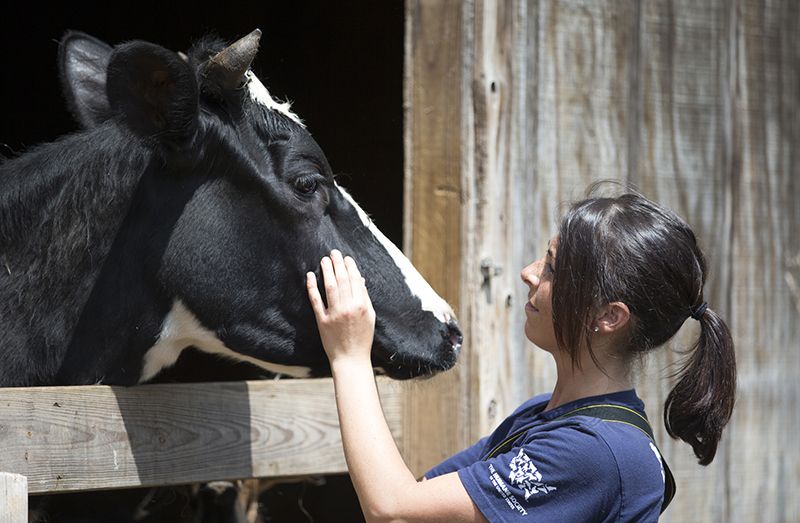
How can law enforcement agencies and animal welfare organizations work together more effectively?
So much of the time, different disciplines work in silos: You’ll have law enforcement doing x, the shelter doing y, the veterinarians doing z. Animals need them to collaborate. We need each other! So one thing our team is working on right now, because it is such an important piece of the puzzle, is getting these stakeholders connected. We want to make sure law enforcement agencies have someone they can call. Animals have such power to bring communities together.
One of my favorite memories is from a case in Ohio where an individual had been trying to get help for animals in distress on her neighbor’s property. The sheriff’s office wasn’t responding to our inquiries, so I made an appointment with the sheriff and flew out to meet with him. We spent an hour together talking about our careers, our families, our animals, and what life was like in his community. By the end of the meeting, he asked if we would help his office with the case. I felt so much pride as 200 animals began receiving the care they desperately needed. The rescue was made possible because of a meaningful human connection with the sheriff.


